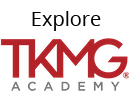- January 10, 2013
- 2 Comments
Good Reading
One of my New Year’s resolutions is to implement pull in as many places as I can. Early last year I implemented it quite successfully in my closet (no new clothes unless something goes). My new area of focus: the stack of books waiting to be read. As a lover of knowledge and books, this may prove more difficult than managing how many pairs of jeans I own (three). But there’s no time like the present to begin consuming my inventory and create a system to better manage it throughout the year (which means saying no to a few publicists, editors and authors).
We begin with four books that I recommend highly:
- The Laws of Subtraction by Matthew E. May. This gem picks up where May’s In Pursuit of Elegance left off. May, a former staffer at Toyota University, knows “less is more” better than most. He’s a stellar Lean thinker whose clear writing and thought-provoking examples make it easy to say “yes” to anything he suggests. An added bonus are the profiles he’s included of people who have used subtraction to achieve more (including yours truly – p. 171). You owe it to yourself to learn May’s “6 Simple Rules for Winning in the Age of Excess Everything.” My favorite: Doing something isn’t always better than doing nothing.

- The Lean Turnaround by Art Byrne. Finally! A Lean book written by an executive who has directly experienced Lean’s power as Lean was meant to be deployed. Byrne is the former CEO at Wiremold and Group Executive at Danaher Corporation, two early adopters of Lean and, to date, two of Lean’s greatest success stories. You want to understand how to sell Lean to leaders? Buy this book and absorb every word. Read it several times. You’ll learn how to speak the language that your leadership team has been looking for. Chapter 8 is my favorite: How Lean Changes Everything. Indeed. This book will now be required reading for senior leaders at my clients.

- The Essential Deming by W. Edwards Deming and Joyce Nilsson Orsini (editor). If you haven’t read Out of the Crisis or any of Deming’s other books, you need to read this one. I’ll go so far as to say that if you don’t understand Deming (whose teachings form the foundation of Lean), your success as an improvement-minded leader or practitioner will be limited. This book includes Deming’s classic teachings, such as the 7 Deadly Diseases of American management and the 14 Points for Management that are the foundation for organizational transformation. Deming had a blunt communication style that I’ve always admired, so it’s fitting that Chapter 4’s title is There Is No Such Thing as Instant Pudding. I have one complaint, however: I found the layout distracting and unnecessarily hard on the eye. It could greatly benefit from better headings, more bolding, bullet points, etc. But the content is powerful— essential reading.

- Gemba Walks for Service Excellence by Robert Petruska. What I love about Bob’s book is how simple it is without being simplistic. This picture-filled gem is a quick read about how best to instill a service innovation mindset that delights customers and fully engages the people delivering value. The accompanying CD includes 10 “placemats” you can use to stimulate discussion around each of the major principles. I was intrigued by one suggestion Bob made and wish I worked in a large organization so I could try it. He suggests that you invite your staff to a meeting with the caveat that no one is required to come. The point? To find out where you stand and begin the transfer of power to the people who are doing the work and, therefore, closest to providing direct customer value.

I invite you to comment if you’ve read of these books or return to this post once you’ve read some of them and share your thoughts.
In the meantime, I’ll periodically post my progress in reducing my book inventory. My goal: a maximum of 3 books in queue by June. Four down, 15 to go. Let’s see how I do!


by John Hunter
I completely agree with: “I’ll go so far as to say that if you don’t understand Deming (whose teachings form the foundation of Lean), your success as an improvement-minded leader or practitioner will be limited.”
The other book that does an excellent job of presenting Deming’s ideas for leaders is The Leader’s Handbook by Peter Scholtes (I am biased) – https://www.pscholtes.com/handbook.cfm